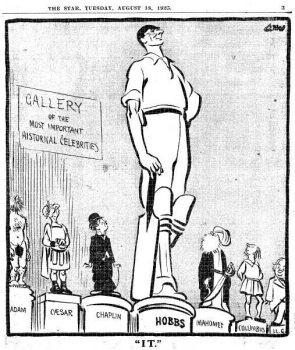We are developing the social individualist meta-context for the future. From the very serious to the extremely frivolous... lets see what is on the mind of the Samizdata people.
Samizdata, derived from Samizdat /n. - a system of clandestine publication of banned literature in the USSR [Russ.,= self-publishing house]
|
“France has an antisemitism problem – and not just from the gilets jaunes”, writes Cécile Guerin in the Guardian.
With a headline like that the obvious next question is where else is France’s anti-semitism coming from, besides the gilets jaunes?
France, like every nation in Christendom, has a long history of Christian hatred of Jews on religious grounds, which gradually morphed into the “traditional” anti-semitism of the far right, exemplified by Jean-Marie Le Pen. That tendency is by no means extinct. I had forgotten that despite his expulsion from the le Front National by his daughter, Le Pen père remains a serving Member of the European Parliament. But though it still has venom, that style of anti-semitism is clearly in decline and is not the source of the upsurge in recent years. So where is it coming from? To answer this question, it surely makes sense to look at the most serious manifestation of Jew-hatred: the murder of Jews. The following is a list of Jews who were killed for being Jews in France this century:
– In 2006 Ilan Halimi, 23, a Jewish mobile phone salesman, was kidnapped and tortured to death over a period of three weeks. The leader of the gang that killed him, Youssouf Fofana, arrived in court shouting, “Allah will be victorious”.
– In 2012 Mohammed Merah, shot and killed three French soldiers, two of whom were, like him, Muslims. He then moved on to the Ozar Hatorah Jewish day school in Toulouse. The Wikipedia article records that “Four people were killed at the school: 30-year-old Rabbi Jonathan (Yonatan) Sandler; his two oldest (out of three) children, Aryeh, aged 6, and Gabriel, aged 3; and eight-year-old Miriam Monsonego, daughter of the head teacher.” Merah said in a call to a TV station that the killings were done “to uphold the honour of Islam”.
– In 2015 Amedy Coulibaly, a supporter of ISIS and associate of the two brothers who had carried out the Charlie Hebdo massacre two days earlier, and who had himself killed a policewoman the previous day, entered a kosher supermarket in Paris and took hostages. He murdered four of them, all Jews. According to Wikipedia, “Coulibaly stated that he targeted the Jews at the Kosher grocery to defend Muslims, notably Palestinians”. It should be noted that during the seige a Muslim employee of the supermarket, Lassana Bathily, courageously hid people from Coulibaly in a cold storage room.
– In 2017 Sarah Halimi was killed by Kobili Traoré, a native of Mali “who shouted about religious ideas in Arabic during the murder”. One could argue that since her killer was not a French citizen her murder is not relevant to a discussion of French anti-semitism. But it is certainly relevant to anti-semitism in France, and by a cruel irony, Sarah Halimi was a relative of Ilan Halimi, the first entry on this list.
– In 2018 an 85 year old Holocaust survivor, Mireille Knolle, was murdered. The authorities have arrested Yacine Mihoub, a Muslim neighbour of Ms Knoll who she had known since he was a child and Alex Carrimbacus whom Mihoub had met in prison. Carrimbacus has claimed that Mihoub called out “Allah Akbar” after killing her.
My list was compiled from memory, backed up by the Wikipedia article on antisemitism in 21st century France. It may contain mistakes or omissions; if you see any please let me know in the comments. But whatever its deficiencies, it is doing better than the Guardian article on anti-semitism in France that I linked to at the start of this post. That has plenty about the far right and a little about the far left but omits mention of Islam entirely.
Cécile Guerin’s article ends with the words, “More soul-searching and longer-term solutions are needed”, but if she cannot bring herself to say the words “Islam” or “Muslim” in an article about French anti-semitism, when so far as I can judge every single anti-semitic murder in France during the 21st century had a Muslim as the sole or leading perpetrator and was proclaimed by the killers themselves to have been done in the name of Islam, then she is not serious about seeking a long term solution. Perhaps she should search her own soul a little harder.
“With journalism’s popularity waning and scandals raging, journalists have never been more interested in the political opinions of `stars.’ While the idea of a reporter caring what they think about matters beyond what it was like to work with some other actor or director, this wading by the make-believe set has begun to impact its bottom lines. `Stars’ are asked to weigh in, to speak out on everything, and fewer and fewer people want to hear it. It’s a business model straight out of a Monty Python skit.”
– Derek Hunter, Outrage Inc: How the Liberal Mob Ruined Science, Journalism and Hollywood. Page 209.
(As per usual I put in my bleat about how sad it is that the word “liberal” nowadays means something rather different than what it once did.)
On July 29th 2004 John Kerry accepted the Democratic nomination with the words, “I’m John Kerry and I’m reporting for duty.” Then he gave a little salute.
Odd, even for Americans, who I know from The Brady Bunch sometimes call their own fathers “sir”. By Kerry’s own account he had committed atrocities during his naval service in Vietnam. His view of the US Navy was such that on April 23 1971, as part of an anti-war protest by Vietnam Veterans Against the War, he had thrown his medals – or possibly just the ribbons – over the fence in front of the US Capitol.
Never mind whether the claims by the group Swift Boat Veterans for Truth were fair or not, the metamorphosis of medal-throwing Kerry to reporting-for-duty Kerry would have been a propaganda own goal even if that group had never existed. Because who on Earth did he think he was appealing to with the salute? As I said in 2006, “What a low opinion of Republicans Democrats must have if they thought that throwing them this little crumb would be enough to gain their votes. Look, he’s a soldier. You like soldiers.”
The Brexit saga has had its own little “reporting for duty” moment over the last week. Gina Miller (remember her?), the Labour peer Helena Kennedy, and the Conservative peer Maurice Saatchi (remember him?) launched yet another anti-Brexit campaign, “Lead not Leave”, billing it as a form of Remain that Leavers could get behind.
It did not go well. Within hours tweets were flying about saying things like,
Christ alive! Just had a glance at Lord Saatchi’s draft Bill for @thatginamiller’s Lead not Leave campaign. Reading this, I can only assume it’s a plot by someone with an obsessive hatred of Germany to guarantee that the UK leaves the EU. Have a look. Dreadful bullshit. 1/
That series of tweets by Steve Bullock @GuitarMoog described a speech in the House of Lords by Lord Saatchi that has now been deleted from the “Lead Not Leave” website. Here it is. Among other things it said that the UK should demand as a condition of it consenting to remain in the EU that the UK should have equal votes in the EU to Germany, despite having a smaller population. The little matter of gaining the agreement of the EU to this drastic and morally unjustified change was not covered. Why should the Germans put up with the UK suddenly deciding they should be put back on probation, as if World War II happened last year rather than a lifetime ago?
And what an insult to Leave voters to assume that all that was needed to get them on side was to insult the Germans. You don’t like Germans. Here’s some anti-German stuff. Now get with the program.
I just watched the first twenty minutes of this speech to camera by Scott Adams, about a piece of CNN fake news. Kudos to Adams who, having dug himself into a bit of a hole by believing some fake news, stopped digging and climbed out, and then filled in the hole by deleting his earlier and wrong interpretation of the story.
This is part of a much bigger story, I think, about how the media are now fragmenting into … well, fragments. Time was when (a) CNN might have valued their reputation for impartiality enough not to be this brazen and this fake in their “news” presentation, and when (b) if they had been this brazen and this fake, nobody else would have been able to do anything much about it. As it is, each part of the shattered ex-body politic now has their own version of these events. Mine is what you’ll see if you watch that second Scott Adams wideo, the one I just watched. If I encounter someone this evening who thinks CNN got this story right, and the event I will be attended means that I very well might, the polite version of how I might respond is: That’s not how I see this. The ruder version might also happen and here’s how that will go: You’re wrong.
Don’t call … them the “mainstream media” because they are not this any more. They’re (we’re) all just media – CNN, Scott Adams, Uncle Tom Cobley on YouTube, me and my pals posting and maybe you commenting on Samizdata – churning out stuff for the kind of people who see things the way they (we) do, and want the kind of news – true, false, dazzling, daft – that they (we) want to offer.
It used to be that you only discovered what liars and nincompoops journalists were capable of being when you were in the middle of one of their stories and actually knew what lies they were telling, if they were. Now, we can all see this whenever we want to, by whistling up a contrary opinion more to our own tastes.
This is a very important change, which has already given the world Trump and Brexit and much else besides, such as, most recently, here in Britain, that already famous Question Time Roar, and all the sort of people who regret Trump and Brexit and The Roar are intensely aware of this. They are fighting back vigorously.
But here is a big opinion about that fight-back, very hastily expressed because I must soon be out. No amount of censorship or bias – by Google, by credit card companies, YouTube, Twitter, Facebook and the rest of them – can even seriously reverse these liberalising (in the true sense) developments, let alone put any sort of complete stop to them.
There should many more links in the above paragraphs, and another page of explanation of that big opinion, but I am out of time. Also, maybe I could be persuaded that free expression, in countries like mine, really is seriously threatened, if anyone can convince me that the fight-back is going to be savage enough. But, gotta go.
Discuss.
I have begun reading Leo McKinstry’s book about Sir Jack Hobbs, whom he describes in his book’s subtitle as “England’s Greatest Cricketer”. So, greater than W.G. Grace then? That’s what McKinstry says, and he emphasises this by telling, at the beginning of his book, on pages 5 and 6 of the Introduction, about how Hobbs surpassed Grace’s record for the number of centuries scored by a batsman in top class cricket (“first class” cricket as we cricket people call it), and of what a sensation this caused in England. This happened several decades before cricket was toppled by soccer as England’s greatest sporting obsession.
Hobbs began the 1925 county cricket season scoring heavily, and the centuries piled up, a century being a personal score of a hundred or more runs by the one batsman. But as Hobbs neared Grace’s record of 126 centuries, and as press and public interest grew, the nerves cut in and started affecting the performances of the usually nerveless Hobbs. The centuries slowed to a trickle. Once, when he got out for 54 (which would normally be rated a decent score), Hobbs walked back to his home pavilion at Surrey’s Oval cricket ground in complete silence, so deep was the gloom and disappointment of the spectators.
But, Hobbs having got stuck within one century of the Grace record, Hobbs’s team, Surrey, were playing Somerset at Taunton. On the first day of that game, August 15th 1925, Somerset were dismissed cheaply and Hobbs reached 91 not out, just a handful of runs short of reaching the record. And the next morning, he inched his way to century number 126. Equality with Grace was apparently what mattered, rather than doing one better, and with the pressure off, Hobbs’s first class century number 127 followed in the second Surrey innings of that same game.
Cue the celebrations:
Across the nation, Hobbs was acclaimed as the greatest sportsman of his age. ‘Jack Hobbs has taken the sporting world by storm. In two days and the same match he has equalled and surpassed the greatest feat ever performed in the annals of cricket; declared the Daily Mirror. Even King George V, a monarch notorious for his gruff reticence, sent a fulsome message of congratulations from Balmoral via his secretary Lord Stamfordham, expressing ‘much pleasure’ at Hobbs’s ‘remarkable success, whereby you have established a new and greater record in the history of our National Game’. Nor could the non-cricket world ignore the event. ‘Britain welcomes a new cricket hero; the New York Times told its readers, explaining that, ‘England has been in something akin to ferment this summer.’ …
But then comes this:
… A ferment of a different sort arose in Britain’s Indian Empire in the wake of Hobbs’s triumph. On the day that Hobbs beat Grace’s record, the Star published a cartoon by the brilliant New Zealand-born illustrator David Low, later to be renowned for his savage depictions of the European dictators of the 1930s. This 1925 cartoon, which perfectly captured the Hobbs mania that had gripped Britain, showed the Surrey player, bat in hand, towering over a series of other historical figures, including Columbus, Lloyd George, Caesar and Charlie Chaplin. Fatefully, Low also inserted in the line-up the Prophet Muhammad, standing on a pedestal and gazing up at Hobbs. When the image appeared in the Indian papers, it caused fury in the Muslim population, not just because Islam regards any portrayal of the Prophet as sacrilegious, but also because Muhammad was placed in a position of inferiority to a mere cricketer. According to the Calcutta correspondent of the Morning Post, the Hobbs cartoon ‘convulsed many Muslims in speechless rage. Meetings were held and resolutions were passed.’ So serious was the problem that the Indian Viceroy, the Marquess of Reading, wrote to the Cabinet in London to convey the feelings of Muslim outrage.
I note with approval that the internet allows us to see what all this fury was about:

Google quickly showed me this cartoon reproduction, which is apparently to be found at the Mohammed Image Archive. There are many other depictions of Mohammed (that being the third version in this posting alone of how this personage is spelt) on view at the other end of that link, but I could not find the above cartoon, although presumably it is there somewhere.
Nor have I been able to determine whether Indian Muslims issued any death threats, against David Low or against anyone connected to or working for The Star. From the reference to “meetings and resolutions” I get the impression: not, or the death threats would have got a mention also. But I would love to know.
Because they’re thinking about it the wrong way, says Anand Menon in the Guardian.
There are moments in life when your heart sinks. I had one last night, right at the start of my terrifying debut on Question Time. Isabel Oakeshott had just said we should leave the EU with no deal. And the audience cheered. Not a subdued, start-of-the-evening, not-quite-warmed-up cheer. But a roar. A loud one.
Professor Menon goes on to give his reasons. They are quite well expressed, and it is good to be aware of opinions contrary to ones own, so I do urge the generally Leave-supporting readers here to take a look.
Now, having said that, will I get away with pretending that my main reason for posting this was something other than the fact that the moment he’s talking about during last night’s Question Time put an enormous silly grin all over my face?
(Hat tip to Guido for the video clip.)
Edit: Take a look at the comments to that Guardian piece in order of numbers of recommends. As I said, Professor Menon himself seems well meaning, but many of the most popular comments talk of their fellow citizens as a Victorian “Nordicist” would speak of the Andaman Islanders:
The Brexit mindset is anti-intellectual – the Brexiteer is proud of their ignorance.
Reasoning with them is useless.
A case in point, Brexiteers (and yes, I am generalising here) claim to be anti-elitist yet put their trust in Boris, Farage and Rees Mogg – the epitome of privilege and elitism.
Think I’m being rude? Good.
That was from someone calling themselves “stinky”. As I write this that comment had received 126 upvotes. There are times when I think I should give in to the Guardian‘s constant begging and give them some money, just to ensure that as many people as possible read these comment threads. As the next comment says, “When people ask me why they should support Leave, I tell them to read the comments on a Brexit CiF article.” Lord knows the British electorate has some wrongheaded views, but it has shown before now that it instinctively knows one of the great truths of politics: that it is unwise to place yourself in the power of those who despise you.
The logic of socialism is to look at someone in a wheelchair and punish the able-bodied by breaking their legs.
– The Academic Agent, talking about The Problem with the BBC. The whole thing lasts just under ten minutes, and that little nugget comes about a minute before the end.
Thank you Instapundit.
The words of economist and philosopher Anthony de Jasay, in a long interview on YT. The full quote, as I transcribe it:
‘…The State can starve you if it has sufficient power over the economy. If there are not (as Schumpeter put it) great private fortresses in the economy to which you can flee from the State, when all these private fortresses are demolished, then you are utterly delivered to the State….’.
. He also said
‘…the State can starve you if it has sufficient power over jobs, over the economy, because it can decide that you will not get a job…’
But with the Patreon and Mastercard blacklisting of certain ‘right wing’ voices on YT, such as the brave Robert Spencer and where no state appears to have done anything, we have a situation where private companies are choosing to end contracts with individuals on what can only sensibly be termed political grounds. This might be the thin end of a very broad wedge. In a cashless society, it could make like very difficult indeed for certain individuals.
Now a libertarian might say that this is unfortunate but simply the choice of a business whether or not it wishes to do business with any particular person, and is not a matter for any form of legal regulation. Furthermore, if there is a breach of contract (e.g. a bogus justification for not processing payments), then damages are limited to the losses that flow from the breach and would cease at the point at which the contract could lawfully have been ended.
A counter argument might be that if it is to do this, a business (assuming that we are talking about the legal fiction of a body corporate) which seeks to refuse custom on political grounds (rather than on grounds of breaching the law), then it should be open about its aims, and be specifically empowered to pick and choose customers in its terms of service and in its company rules. So if Mastercard advertise to me that I can use my card for payment, without qualification, then it has fraudulently mis-represented to me what it will do since in an objective reality, making payment to Mr Robert Spencer, (pbuh) is perfectly innocuous, and my custom has been obtained by deceit, and Mastercard has in fact a general obligation to process payments made by me to whomever I choose, except where an illegality issue arises, where it need not advertise the fact.
And of course, a company does nothing, it has the legal fiction of a corporate personality, whereby it is supposedly liable for its acts, not always those who work for it. But if those who work for a company are not acting in its best interests, but in the interest of their own malevolence, can that company claim against them? Should the ‘veil of incorporation’ be pierced?
And what sort of a weapon might that be in certain judicial circuits in the United States, or other jurisdictions, where ‘social justice’ might be deemed a requisite corporate objective?
So, what would those who tend towards libertarianism, and some around here may be 0.999 (recurring) in the direction, others not so close to being an integer, say could or should be done about the situation, if anything?
And does the State (from its own pov) need to do anything more to restrict the internet if there is a ‘private’ solution to undesirable speech on the internet?
Here’s Lucy Mangan’s review of Brexit: The Uncivil War:
Brexit: The Uncivil War review – superficial, irresponsible TV
In an era besieged by misinformation, it was the duty of the makers of this Cumberbatch referendum drama not to add to the chaos. They did not succeed
And here’s the “inflatable boy” joke from the Vicar of Dibley.
Update: Four stars from the Times. The review by Carol Midgley is paywalled, but here it is without the boring bits:
Brexit without the boring bits is a blast
… James Graham’s drama was rollickingly good entertainment, in a heart-sinking “oh, but this is still our real-life car crash” kind of way.
It wasn’t really the story of the Leave and Remain campaigns, it was the story of DC — that’s Dominic Cummings, not David Cameron, who didn’t even merit a part, so boring and irrelevant did Graham consider him to be. Cummings, I imagine, will be pretty flattered by his portrayal, brilliantly done by Benedict Cumberbatch, save maybe for the balding forehead he donned to play him and the fact that Craig Oliver (Rory Kinnear) called him “an egotist with a wrecking ball” and a “f***ing arsehole”.
True, the political adviser was presented as unhinged (at one point he literally lay in the road with an ear to the ground), with sneering contempt for politicians. But he was also seen running rings intellectually around MPs and old-guard Brexiteers, basically delivering the Leave victory through vision and data mining to tap invisible voters. Oh and putting that £350 million for the NHS claim on the side of the bus. It wasn’t true but, hey, who cares in “war”, eh? It was he, evidently, who devised the “Take Back Control” slogan, inserting the word “back” after reading a parenting book next to his sleeping pregnant wife (this feels unlikely).
…
And did you notice that in neither Leave’s nor Remain’s campaign was there a single mention of the EU divorce bill or the Irish border? This was an accurate (and painful to many) reminder that while Leave bent the rules, Remain was complacent, lacklustre and fatally out of touch with a forgotten demographic.
If you want the non-fiction TV version, this talk by the real Dominic Cummings is it. And this post from Cummings’ own blog, later turned into a Spectator article, was probably the inspiration for the whole drama: On the referendum #21: Branching histories of the 2016 referendum and ‘the frogs before the storm’
Yes, a rather belated Merry Christmas to all my fellow Samizdatistas, and similar wishes and thanks to all who read us and comment on us and on each other.
I’ve been trawling through my photo-archives for Christmas-related imagery, and here are half a dozen photos that I liked, and which I hope you will like also.
I photoed these people, many of whom were seasonally attired, in December 2012, as they disported themselves down by the riverside here in London, at low tide:

Next up, something topical, which Maplins in Tottenham Court Road was trying to sell as a Christmas present in December 2014:

Sadly, Maplins is now bust, and Tottenham Court Road’s electrical business is now in steady retreat, in the face of advances by clothes and furniture stores.
Next, taken exactly two years to the day after that drone photo, some literature. In Foyles, under the Royal Festival Hall:

Next up, a typically discontented crop of Newapapers, again, December 2016:

And finally, a couple of snaps taken in January of this year, in Lower Marsh, which is one of my favourite London haunts, or it was, until Gramex closed its doors. Sign that you’re getting old: your favourite shops keep closing. Lower Marsh is the kind of place where the effort they put into their Christmas windows tends to linger on into mid-January.
First of these last two, a selfie in a shop window, a favourite photo-genre of mine, featuring some satisfyingly ancient technology in the foreground:

I never could be doing with photography until the digital version of it arrived just before this century did, but I still use a phone like that one.
Finally, this, taken minutes later:

I don’t know what that creature is. His expression suggests that something just went wrong with his Christmas cooking.
Here’s hoping nothing goes wrong with your Christmas or with your Christmas cooking, or for that matter with mine.
Suzanne Moore on Twitter, on Twitter:
One thing twitter has ruined for ever is the fantasy that left-wing people are nice. What a bunch of bastards. Spewing out nastiness. I am on the left myself but very rarely pure enough to be as shitty as these true believers.
People complain about how Twitter and the rest of social media, and the internet generally, have enabled nasty and anti-social people to set aside their inhibitions and to be honestly nasty in what they say and how they say it. But this is a feature as well as a bug. I rejoice that the current state of communications technology has caused, in particular, many leftists to rip off their masks of virtue, and to reveal the sheer savagery and malevolence that used to be hid behind those polite masks.
This is one of the many arguments in favour of free and unfettered expression. We get to learn who civilisation’s enemies are. The nasty leftists whom Suzanne Moore refers to do not “mean well”, and now, thanks to social media especially, both she and the rest of us can all see this.
See also: Islam. By any sane definition, the Quran contains a great deal of “hate speech”. But that is a big reason why we all – Muslims and infidels alike – should continue to be allowed to read it, and to see – in the case of “moderate” Muslims, to face – what it truly says.
It turns out that one of Germany’s best-regarded reporters, Claas Relotius, has been doing for Der Spiegel what Jayson Blair did for the New York Times.
I have given this post the tag “Deleted by the PC Media”. That’s because we don’t have a tag called “Invented by the PC Media”. Like Blair before him, if Mr Relotius could not find the right juicy detail to enliven a story his custom was to make one up. He was at it for years. This article about the Relotius case in Der Spiegel by Ullrich Fichtner has not yet appeared in English, but the miracle of Google Translate allows me to make a guess as to how Relotius got away with it so long:
In his story about Fergus Falls, Relotius, in a hurtingly haughty way, is styling contemporary history. To have a hearty prelude, he tells us that at the entrance to the village right next to the welcome sign, a second sign was set up, “half as high, but hard to miss … On this sign, driven from thick wood into the frozen ground, stands in large, painted letters: ‘Mexicans Keep Out’ – Mexican, stay away. ”
The shield, which gives the whole story the keynote, never existed, it was only in the imagination of the author. Nevertheless, he passed the invention on as a matter of fact to hundreds of thousands of readers, just like that. And he insulted the inhabitants of Fergus Falls. It seems so, in the overall view, that people who are no longer children tell him nothing. There are exceptions, but Relotius gives the inhabitants of Fergus Falls false biographies that fit him as if he were a puppeteer. He also goes along with grotesque lies, such as that the children of the John F. Kennedy High School painted their models for the American Dream as follows: “They painted,” writes Relotius, “not a single picture of a woman. One class painted Barack Obama, two painted John D. Rockefeller.
Schoolchildren in 2018 are so enchanted by the example of John D Rockerfeller that they choose him to represent the American Dream? It seems unlikely that they would even have heard of this capitalist except as a bogeyman. But evidently it did not seem an unlikely thing to happen in Trump’s America to Der Spiegel‘s readers. Relotius told them what they wanted to hear.
Update: In the comments Rob Fisher pointed out this “Fisking” of Relotius’s article by two residents of Fergus Falls:
There are so many lies here, that my friend Jake and I had to narrow them down to top 11 most absurd lies (we couldn’t do just 10) for the purpose of this article. We’ve been working on it since the article came out in spring of 2017, but had to set it aside to attend to our lives (raising a family, managing a nonprofit organization, etc.) before coming back to it this fall, and finally wrapped things up a few weeks ago, just in time to hear today that Relotius was fired when he was exposed for fabricating many of his articles.
|
Who Are We? The Samizdata people are a bunch of sinister and heavily armed globalist illuminati who seek to infect the entire world with the values of personal liberty and several property. Amongst our many crimes is a sense of humour and the intermittent use of British spelling.
We are also a varied group made up of social individualists, classical liberals, whigs, libertarians, extropians, futurists, ‘Porcupines’, Karl Popper fetishists, recovering neo-conservatives, crazed Ayn Rand worshipers, over-caffeinated Virginia Postrel devotees, witty Frédéric Bastiat wannabes, cypherpunks, minarchists, kritarchists and wild-eyed anarcho-capitalists from Britain, North America, Australia and Europe.
|










